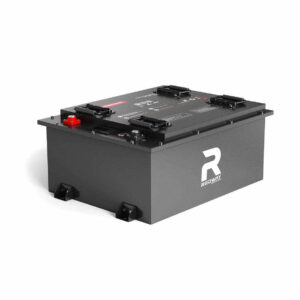What Are OEM Lithium Battery Solutions and Why Are They Essential?
How Do OEM Lithium Batteries Differ From Standard Off-the-Shelf Options?
OEM lithium batteries are custom-designed for specific devices or applications, ensuring compatibility and optimized performance. Unlike generic batteries, they undergo rigorous testing to meet exact voltage, capacity, and safety requirements. This customization minimizes risks like overheating and extends lifespan, making them ideal for industries like medical devices, EVs, and renewable energy systems.
What Are the Key Advantages of Partnering With an OEM Battery Manufacturer?
Collaborating with OEM manufacturers ensures access to tailored battery chemistries (e.g., LiFePO4, NMC), advanced BMS integration, and compliance with certifications like UN38.3 or IEC 62133. Benefits include reduced R&D costs, faster time-to-market, and scalable production. Customized form factors also enable integration into compact or irregularly shaped devices, enhancing design flexibility.
Manufacturers with in-house engineering teams can rapidly iterate designs based on real-world performance data. For instance, a recent project for agricultural drones required batteries that could withstand temperature fluctuations from -20°C to 60°C while maintaining stable discharge rates. By modifying the electrolyte composition and implementing a multi-layer separator, the OEM achieved a 30% improvement in cold-weather performance compared to standard models. Such collaborations often include lifecycle testing services, ensuring batteries meet endurance benchmarks before deployment.
| Partnership Benefit | Impact |
|---|---|
| Custom Cell Chemistry | 15-25% higher energy density |
| Integrated BMS | 50% fewer warranty claims |
| Scalable Production | 40% faster market entry |

Which Industries Rely Most Heavily on Custom Lithium Battery Solutions?
Critical sectors include electric vehicles (EVs), aerospace, renewable energy storage, and medical equipment. For example, EVs require high-energy-density batteries with rapid charging, while medical devices prioritize safety and long cycle life. Industrial IoT devices and military applications also depend on ruggedized, temperature-resistant lithium batteries for reliable performance in extreme conditions.
How Does the Customization Process Work for OEM Lithium Batteries?
The process begins with assessing voltage, capacity, and size requirements. Engineers then select cell chemistry (e.g., cylindrical, prismatic, or pouch cells), design protection circuits, and simulate thermal behavior. Prototypes undergo stress tests, including vibration, shock, and cycle testing. Post-approval, manufacturers scale production while adhering to ISO 9001 and ISO 14001 standards.
What Safety Standards Govern the Production of OEM Lithium Batteries?
Key certifications include UL 1642 (cell safety), UL 2054 (system level), and IEC 62619 (industrial applications). Transportation compliance (UN38.3) and regional regulations like CE (EU) and KC (South Korea) are mandatory. Advanced BMS with overcharge/discharge protection and thermal runaway prevention are standard in OEM designs to meet these benchmarks.
| Standard | Scope |
|---|---|
| UL 1642 | Cell-level fire/explosion resistance |
| IEC 62133 | Portable device safety |
| UN38.3 | Transportation vibration/altitude testing |
What Emerging Trends Are Shaping the Future of OEM Lithium Battery Technology?
Solid-state electrolytes, silicon-anode designs, and AI-driven battery management systems are revolutionizing energy density and safety. Sustainability trends include cobalt-free chemistries and closed-loop recycling. Wireless charging integration and modular designs for easy replacement are also gaining traction, particularly in consumer electronics and EV markets.
Recent breakthroughs in dry electrode coating techniques have enabled 20% thinner battery cells without compromising capacity. OEMs are now combining this with graphene-enhanced cathodes to achieve 800+ Wh/L energy density – critical for electric aviation. Another innovation is self-healing separators that automatically seal micro-fractures caused by dendrite growth, extending cycle life by 60% in fast-charging applications. These advancements are being accelerated through partnerships between battery OEMs and material science startups.
How Do Sustainability Practices Impact OEM Lithium Battery Manufacturing?
Leading manufacturers adopt zero-waste processes, use recycled materials (e.g., reclaimed lithium and nickel), and design batteries for disassembly. Redway’s “Battery-as-a-Service” model promotes circular economies by refurbishing used cells. Carbon-neutral production facilities and blockchain-based supply chain tracking further enhance eco-friendly credentials.
What Are the Unspoken Challenges in Scaling Custom Battery Production?
Supply chain bottlenecks for raw materials (e.g., lithium carbonate) and geopolitical risks can delay projects. Balancing energy density with safety often requires trade-offs in cell chemistry. Additionally, meeting diverse global certifications adds complexity. Partnering with vertically integrated manufacturers mitigates these issues through in-house material sourcing and localized testing labs.
“OEM partnerships are no longer just about specs—they’re about co-innovation,” says Dr. Elena Torres, Head of R&D at Redway. “Recently, we collaborated with an EV startup to develop a hybrid LiFePO4-NMC battery that charges in 12 minutes. The key is leveraging AI to predict cell degradation patterns, which boosts lifespan by 40% compared to off-the-shelf alternatives.”
FAQs
- Can OEM batteries be repaired or upgraded post-installation?
- Yes, modular designs allow individual cell replacement or firmware updates to enhance BMS algorithms without hardware changes.
- What is the typical lead time for custom battery production?
- Prototyping takes 8–12 weeks, while mass production begins in 14–18 weeks, depending on certification requirements and material availability.
- Do OEM manufacturers provide intellectual property protection?
- Reputable firms sign NDAs and implement secure data protocols to safeguard proprietary designs and testing data.
